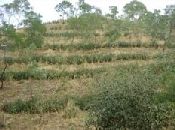|
Preventative forestry
Authors: University of Aveiro (in collaboration with: Escola Superior Agrária de Coimbra, University of Wales Swansea)
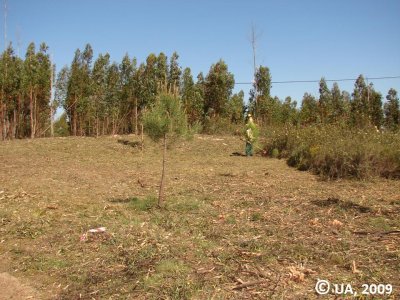 |
Definition
Preventive Forestry is composed by a set of measures applied to forest stands, shrubs and other spontaneous species to protect forest against fires. These measures deal with forest stands composition, structure and location, aiming to reduce fire risk and to increase vegetation resilience to fire.
|
| Primary Strip Network System for Fuel Management: mitigation strip © UA, 2009 |
|
|
Objective:
- Promote non-continuous strips to combat fire spread;
- Forest stands/ vegetation cleaning;
- Settlements/ stands division;
- Maintenance of infrastructures.
|
Conservation measure: structural
Intervention: reducing the fire risk
Type of land use: forest and agroforestry
|
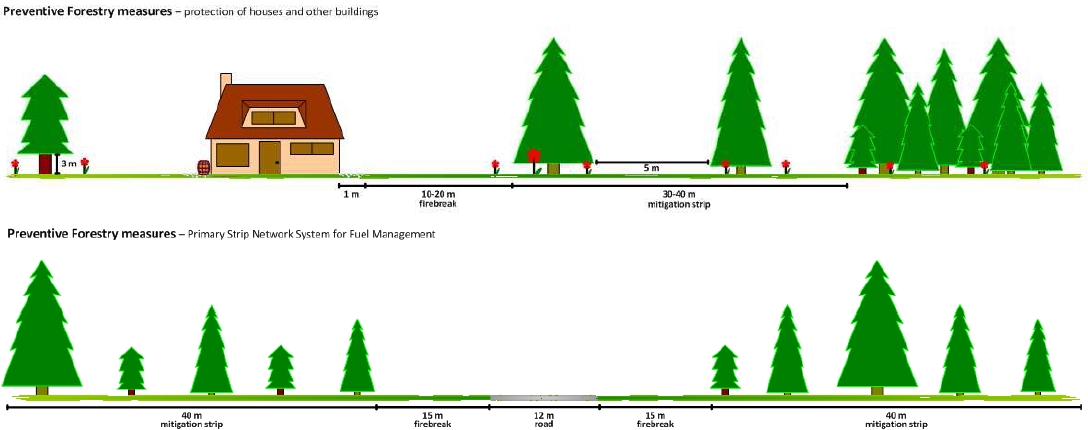
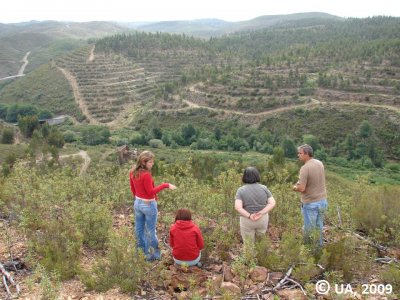 |
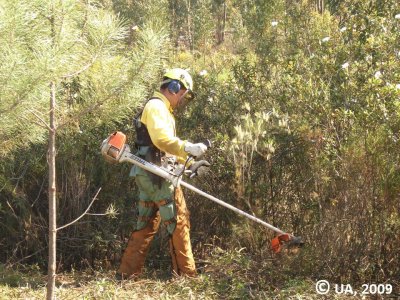 |
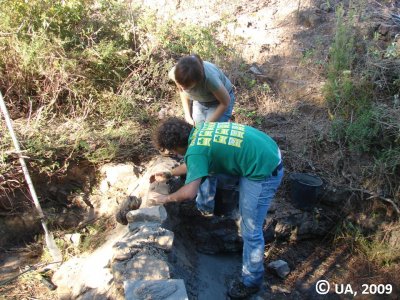 |
| Informal discussions with local stakeholders. © UA, 2009 |
Implementation of the Primary Strip Network System for Fuel Management. © UA, 2009 |
Field work. © UA, 2009 |
| Primary Strip Network System for Fuel Management: Mação Municipality |
| Interval (km) |
150 |
Urban area and water masses (ha) |
70 |
| Internal area (ha) |
1875 |
Agriculture (ha) |
236 |
| Shared with other municipalities (km) |
14 |
Forest (ha) |
833 |
| Shared area (ha) |
175 |
Shrubs and degraded forest area (ha) |
824 |
| Total area (ha) |
|
1963 |
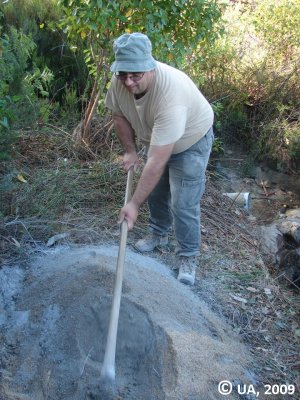 |
Main results and analyses
- reduction of the fuel load;
- reinforcement of the forest path system;
- increase of the landscape resilience.
Monitoring, installation of:
- small flume;
- water level recorders;
- meteorological station;
- rainfall gauge network.
|
| Field work. © UA, 2009 |
|

